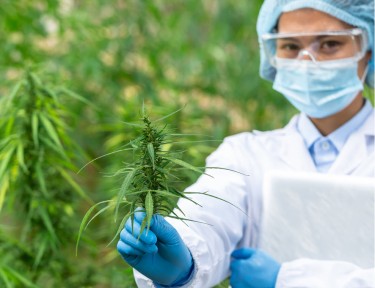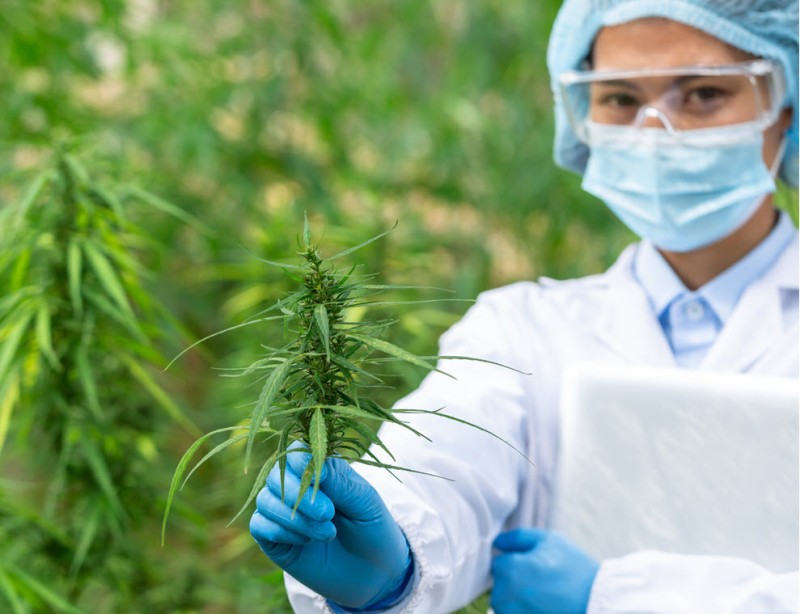
With the increasing demand for legal cannabis and heightened participation of various states, the need for comprehensive and rigorous testing solutions has now become vital. Considering a lot of individuals use cannabis products for medical purposes, they should have to worry about falling ill from consuming pathogenic infested cannabis products.
This concern is most especially true for consumers with autoimmune disorders as the negative impact of consuming contaminated hemp is fatal. While there could be federal criteria for pathogen testing prerequisite, that can't happen just yet as cannabis isn't legal at the feral level. To this end, the tasks have called on state regulators, legislators, and maintenance operators to safeguard consumers' health via the implementation of more rigorous testing.
Looking at the environmental conditions needed for cannabis to grow — light, heat, soil, and humidity, these same sets of conditions also allow the prolific growth of pathogens. These pathogens are so present that even when cannabis farmers take all the necessary sanitation protocols, contamination is still very possible.
This is why cannabis firms need to be very proactive and hyper-vigilant about testing rather than reactive. At the moment, several states are lacking testing regulations which is quite alarming, and considering the competitiveness in the cannabis industry, many companies have been established within a short time.
Unfortunately, many of these cannabis firms are unscrupulous actors that rode into the industry courtesy of loose testing regulations. Many of the businesses were established to earn quick cash even to the detriment of consumers' health. To break this vicious cycle, then there's a need to establish more rigorous enforcement and regulations.
What many cannabis firms don't realize is that while loose testing regulations might help them make money in the short term, more damage will be done in the long term. The long-term effect of this loose testing regulation will carry major economic consequences and damage to the industry. Above all, death or injury to patients and customers. If recalls of cannabis products should happen based on the mentioned instances, it could be the beginning of the end.
If recalls should happen, the media will be all over it, and opponents of cannabis legalization will have a reason to back their claims. To win the public hearts and the opposition's minds, then the need for a safe product is paramount. Hence, cannabis will be labeled as a risky herb.
Taking a closer look, the irony at play is evident. While a sense of cannabis regulation at the federal level increases the risk of cannabis contamination, recalls can be used by the opposition to justify their claims to keeping the plant illegal. Notwithstanding, sooner rather than later federal legalization of cannabis will happen. When that happens, federal agents will be able to regulate and effectively test cannabis with cGMP effectively required
Violation of any testing regulation will no longer be overlooked and businesses will be closed for negligence. To avoid a meltdown of the cannabis industry, cannabis firms on their own have to practice wide-sweeping and rigorous testing regulations. If not, the outcome is dangerous and if companies decided to wait for federal cannabis legalization before taking a step, the industry might sink before that.
Present Testing Regulations
In truth, the present structure of cannabis testing regulations is non-existent and the repercussions are yet to be recognized. Barely a few months back, a judge in Michigan overturned a recall put out by the Marijuana Regulatory Agency (MRA) in Michigan. This decision re-introduces contaminated cannabis products on the shelf. A product that has been tested to contain a high amount of aspergillus and mold. This is the usual case of greed and the power of money prevailing over the health and safety of consumers.
The lack of testing regulations even in a well-established cannabis market is glaring. For example, testing for aspergillus was not part of testing regulations in Colorado. Aspergillus which causes aspergillosis when inhaled can be very deadly, particularly for those with immune complications and diseases. Till now, many states still overlook trace amounts of various pathogens (aspergillus inclusive) when present in samples of cannabis.
While you may think trace amounts are insignificant, accumulation is likely among frequent consumers who have been smoking for a very long time. Constant inhalation of trace amounts of pathogens can lead to various pulmonary diseases and lung problems in the long run. To this end, MSOs and state regulators are needed to raise testing standards higher, demanding more aggressing and stringent testing protocols.
These companies and regulators can establish enormous changes in the industry to adequately protect the well-being and health of consumers. Just following the present loose testing regulations shouldn't be part of it. Shortcuts around testing should be a thing of the past and better demand for an effective testing framework should be adopted for adult use and medical cannabis products.
Presently, several states adhere to cGMP for medical cannabis but not adult use. For many who are effortlessly seeking cannabis legalization, potentially causing harm to consumers is against their objectives. Cannabis, when pure, offers clinical and therapeutic values to both medical and recreational users. Cannabis firms should ensure that consumer health via their cannabis product is not endangered.
To produce pure and untainted products, companies should carry out the best practices. This is done by carrying out tests at every stage in the supply chain and not only at the final product. We advise that the latest testing solutions and methods should be used in the testing of these products for quick, and more efficient results. A lot of companies do not have access to this advanced testing equipment which is why they use the archaic Petri dish method. A method that is slow, and quite inefficient usually overwhelm companies, and they end up not testing their products adequately.
Conclusions
Presently, while regulatory structure seems to be falling short as regards safeguarding the health of consumers, better solutions are already available. The missing piece is for all regulators and cannabis firms to view testing in a new light. It is a very important aspect of production. With proper testing regulations, consumers' health can be protected and a prosperous, strongest and trustworthy cannabis industry will be created.







